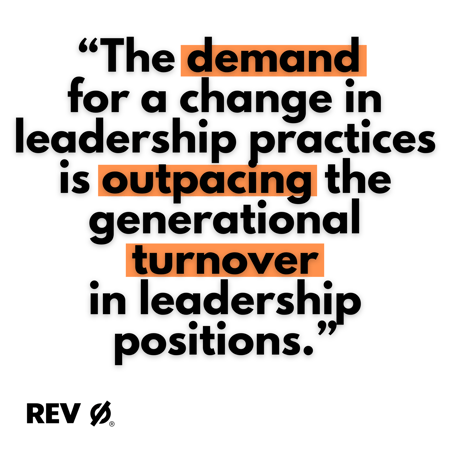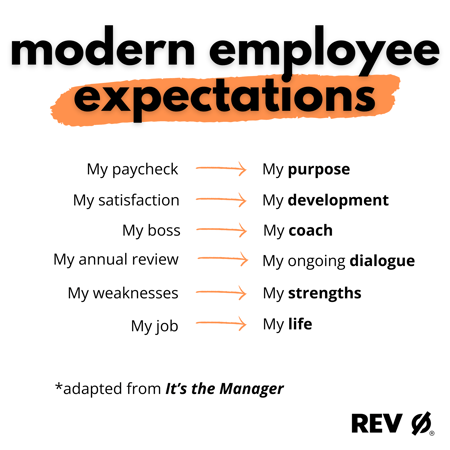Leadership is an arena full of opinions and perspectives, but if you're like me, you prefer practical tools based on research—not anecdotes—to improve your effectiveness in managing yourself and others and leading a company.
The Science of Leadership
I was three years into my first job and on my fifth supervisor when I read my first Harvard Business Review article titled Managing Up. My supervisor, one of the best I’ve ever had, handed it to me not just to improve my work but to help me understand how to take responsibility for how I was managed. That insight - that management is everyone’s personal responsibility, not just the person with the title - has stuck with me throughout my career. It’s a key point in understanding leadership: you have to deliberately manage up, down, and sideways, and that responsibility belongs to everyone.
Many people are surprised to learn that leadership is the subject of scientific study. The practice and study of psychology, born out of the Industrial Revolution when the evolution of work began to affect employees detrimentally, has advanced to understand that productivity and well-being are tied together and that the manager is the most important piece to drive employee engagement and well-being.
Gallup, for instance, has been studying people at work extensively, from CliftonStrengths assessments to Q12 Employee Engagement surveys. They offer valuable insights into the impact of managers. Jim Clifton, Gallup’s Chairman, noted in 2019: “While the science of management has advanced significantly in the past three decades, the practice of management hasn’t.” And since then, we've experienced even more disruption in the field. In general, the demand for a change in leadership practices is outpacing the generational turnover in leadership positions - when you normally see a change in practice. Today’s managers and business leaders must embrace this science, change themselves, and modernize how they lead.

Why the Manager Matters
If you’ve ever had a bad boss, you know how deeply a manager impacts your life; you understand how their behavior bleeds into every area of your life. You get an email from them late at night and instantly feel a pit in your stomach, or spend your weekends venting to friends about their micromanagement. That stress doesn’t just affect your workday—it affects your personal life and mental health, too.
On the other hand, a good boss makes you feel focused and appreciated. You start enjoying work, even rejecting tempting offers from recruiters because you’re happy where you are. This isn’t just anecdotal. Gallup’s research shows that managers account for at least 70% of the variance in employee engagement scores across business units.
Managers have always mattered, but in today’s world, what it means to manage has changed. Instead of working just for a paycheck, we want work with a purpose (and a paycheck). Instead of feeling satisfied and pacified, we want challenges that help us grow. Instead of a manager as a boss, we need a manager that works with us as a coach. Expectations have evolved from annual reviews to ongoing dialogue and from a weakness fixation to recognizing and leveraging our strengths.
These aren’t attributed to generational shifts; they reflect what today’s workplaces need to thrive. It's the manager's responsibility to adapt.

While this shift is happening across industries, leadership isn’t a one-size-fits-all concept. The GLOBE Project, a decades-long study of leadership, reveals how expectations of leaders vary across industries and cultures. They find that while there is not an ideal leadership style, there are universally valued traits, which include integrity, inspirational vision, and performance orientation.
What does this mean?
Leadership can and should be individualized. Don’t try to replicate what works in sports, the military, or even another industry. Instead, focus on the principles that transcend those boundaries—like acting with integrity, being inspirational, having a compelling vision, and being performance-oriented.
Use One-on-One Meetings to Build Strong Relationships
One of the best tools any manager can use is the one-on-one meeting. This is more than a simple check-in meeting, it's an important opportunity to coach and connect, helping your employees find focus and purpose in their work. I’ve developed a one-on-one meeting form based on my client’s needs, and it’s helped many managers establish structure in their conversations. This tool has proven effective whether you’re trying to get one-on-ones back on track or starting them from scratch. You can download the form here: One-on-One Meeting Template.
The Foundation of Effective Leadership Is How Well You Manage Yourself
No matter the group of people you're put in charge of, the hardest person to manage will undoubtedly be yourself. There’s no one who will manage your time, your career, or your life for you, and you have a responsibility to manage yourself because you have a responsibility to others. What we see in research is that people who take care of themselves are in a position to benefit others for longer. It's like putting your oxygen mask on first.
Self-management is critical for long-term leadership success. The more adept you are at managing yourself, the better your team will perform, and the more likely you’ll be able end each day feeling good about your work. There are three elements of managing yourself that I recommend focusing on:
1) Design Your Behavior Using the Tiny Habits Framework
Behavioral design is one of the most effective approaches to self-management. BJ Fogg’s Tiny Habits framework teaches us that big aspirations—like going to the gym every morning at 5 AM - often fail because they rely on motivation, which fluctuates. Instead, success comes from starting small: “After my alarm goes off, I will sit up.” By breaking behaviors down into tiny, manageable steps, you set yourself up for consistency - and small wins along the way.
2) Adopt Work-Smart Practices to Improve Your Productivity
In Great at Work, Morten Hansen identifies seven work-smart practices that boost productivity. I want to draw attention to these three that I've found extremely helpful for my clients:
- Do Less, Then Obsess: Focus on fewer tasks but do them obsessively well.
- Loop Learning: Constantly learn through feedback.
- Redesign Your Work: Change your job before you change companies.
These practices can help you stay focused and continuously improve, leading to better performance without working longer hours.
3) Learn to Manage Up
Managing up is about building a productive relationship with your manager. It involves understanding their goals and pressures and finding ways to support them while advancing your own objectives. This might mean asking for clarity, being honest about what you need, and offering encouragement to create a more harmonious, effective working environment.
Leadership Is a Journey
Leadership development doesn’t happen overnight. It’s a continuous process of growth, letting go of old roles and adapting to new ones. The Leadership Pipeline concept highlights that each stage of leadership requires new skills—and a willingness to let go of the tasks and responsibilities of previous roles. This process is challenging, but it’s essential for anyone looking to grow as a leader.
Leadership is a continual journey of learning, application, feedback, and observation. Coaching is one resource available to provide the accountability and feedback needed to consistently apply leadership principles and see real growth over time.
Modern leadership is complex, but with the right tools and mindset, you can lead effectively and authentically. It’s a journey, and like all great journeys, it starts with the first step.
Resources
Clifton, J., Harter, J., (2019). It's the Manager: Moving From Boss to Coach. Gallup Press.
Hansen, M. T., (2018). Great at Work. Simon& Schuster Paperbacks.
Rev Ø's One-on-One Meeting Template.